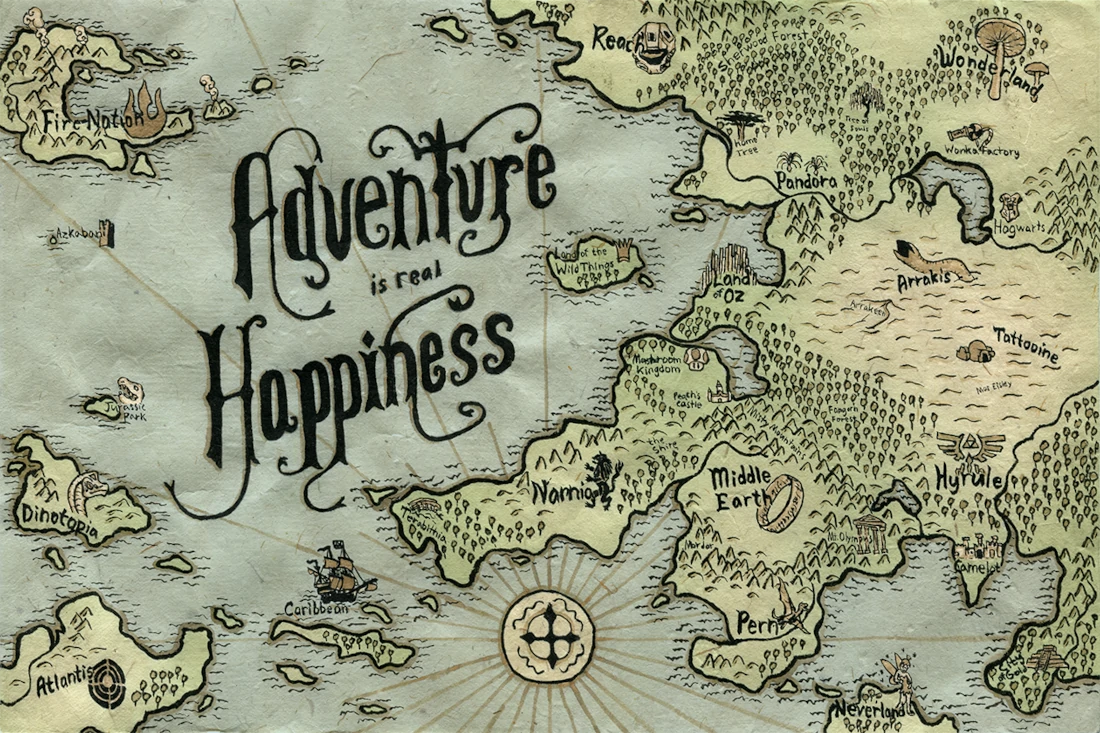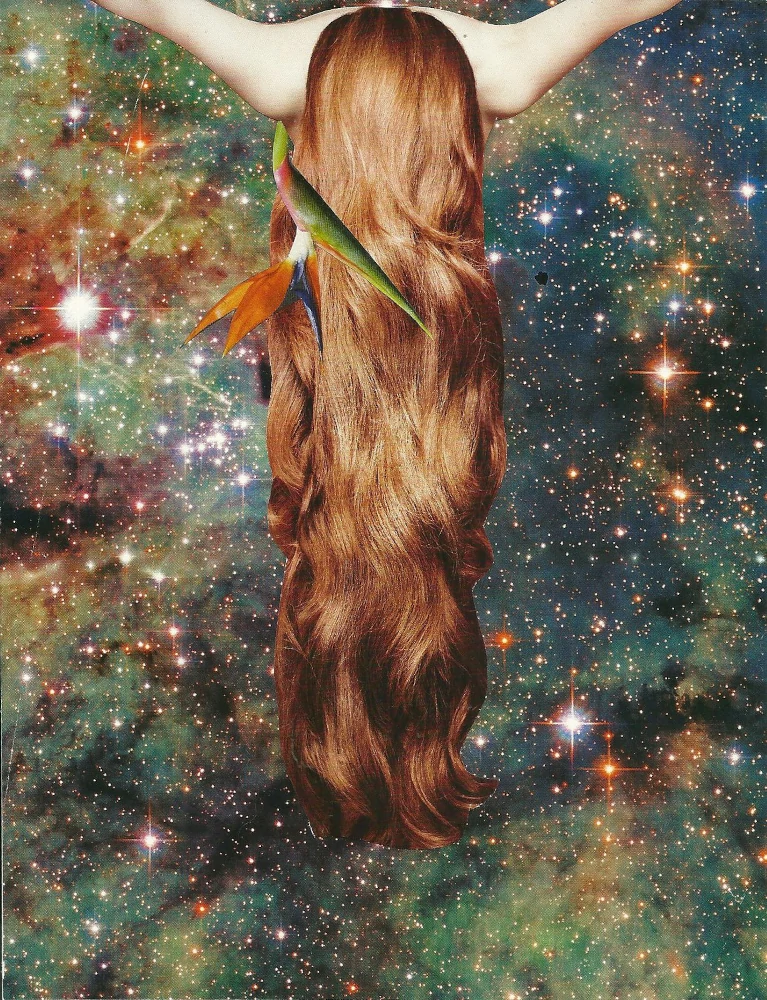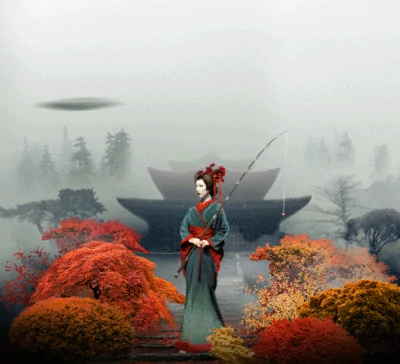
Curated Quotes from the Fantastic
Words By Jordan Ryder, Art By Alex Vitti
Of all the genres, fantasy is the most infinite because it includes everything in real life and everything outside of it—and the latter is infinitely more vast than the former.
But what is fantasy, really? It’s Shakespeare’s A Midsummer Night’s Dream and Kazuo Ishiguro’s The Buried Giant. It’s J. M. Barrie’s soaring Peter Pan and Lewis Carroll’s the mad, Mad Hatter. It’s Wingardium Leviosa and second breakfastses, and everything else above, below, and in-between.
But no! you cry. What is it?
Well, according to the beloved J. R. R. Tolkien, who (in case you forgot) wrote The Lord of the Rings:
The realm of fairy-story is wide and deep and high and filled with many things: all manner of beasts and birds are found there; shoreless seas and stars uncounted; beauty that is an enchantment, and an ever-present peril; both joy and sorrow as sharp as swords. In that realm a man may, perhaps, count himself fortunate to have wandered, but it’s very richness and strangeness tie the tongue of a traveller who would report them. And while he is there it is dangerous for him to ask toomanyquestions, lest the gates should be shut and the keys be lost.
–J. R. R. Tolkien
And, from the man who brought us A Song of Ice and Fire (A.K.A. A Game of Thrones), fantasy is:
…silver and scarlet, indigo and azure, obsidian veined with gold and lapis lazuli. Reality is plywood and plastic, done up in mud brown and olive drab. Fantasy tastes of habaneros and honey, cinnamon and cloves, rare red meat and wines as sweet as summer. Reality is beans and tofu, and ashes at the end. Reality is the strip malls of Burbank, the smokestacks of Cleveland, a parking garage in Newark. Fantasy is the towers of Minas Tirith, the ancient stones of Gormenghast, the halls of Camelot. Fantasy flies on the wings of Icarus, reality on Southwest Airlines. Why do our dreams become so much smaller when they finally come true?
–George R. R. Martin
Sigh. Why indeed.
Fantasy is also seemingly boundless:
There are no rules of architecture for a castle in the clouds.
–G. K. Chesterton
If I want to dream up a fountain that spouts ambrosia bubbles and a dragon doorman to transport me down my cloud-covered driveway, I can.
(Somebody, somewhere, just cleared their throat. I heard you.)
But is fantasy “escapist?” (Are you suggesting that travelling up to my cloud castle in the sky is escaping?)
I have claimed that escape is one of the main functions of fairy-stories, and since I do not disapprove of them, it is plain that I do not accept the tone of scorn or pity with which “escape”‘ is now so often used. Why should a man be scorned if, finding himself in prison, he tries to get out and go home? Or if he cannot do so, he thinks and talks about other topics than jailers and prison-walls?
–J. R. R. Tolkien
The better question seems to be, then: does it matter if it is?
When Dickens published A Christmas Carol nobody went, “Ah, this respectable social novelist has suddenly become a fantasy novelist: look, there are ghosts and magic.”
–Neil Gaiman
When Tolkien was writing The Lord of the Rings it wasn’t regarded as in the fantasy genre, either…[he] wanted to do a book in which, for the novel to work, you needed a dragon breathing magical mist over the world; you needed it to occur in a post-Arthurian world; you needed your monsters and your ogres and your pixies.
I do need my pixies. And my ogres, too. Because:
Fantasy is hardly an escape from reality. It’s a way of understanding it.
–Lloyd Alexander

In the end, whether the protagonist can wiggle their wand or float with some help from a bit of fairy dust, literature is about a good story. And as always, Ursula K. Le Guin knows best:
People who deny the existence of dragons are often eaten by dragons. From within.
–Ursula K. Le Guin
Yes. This is true.
The shadows of Ina-Karekh are the place where nightmares dwell, but not their source. Never forget: the shadowlands are not elsewhere. We create them. They are within.
–N. K. Jemisin
In fantasy, your monsters have room to breathe safely in the frothing lava of Mount Doom, or in the shadowed land of dreams. And then, once we seethem for all they are, we can figure out how to beat them.
I don’t think there’s any harm at all in allowing a kid to fantasize. In fact, I think to stop people from fantasizing is a very destructive thing indeed.
–J. K. Rowling
If that’s true (and I think we know that it is), it’s astonishing to think how much destruction J. K. Rowling has prevented since 1997.
And yet, though seemingly boundless, and for all its “props and special effects,” the genre is not without its limits:
“If you want to write a fantasy story with Norse gods, sentient robots, and telepathic dinosaurs, you can do just that. Want to throw in a vampire and a lesbian unicorn while you’re at it? Go ahead.”
–Patrick Rothfuss
Nothing’s off limits. But the endless possibility of the genre is a trap. It’s easy to get distracted by the glittering props available to you and forget what you’re supposed to be doing: telling a good story. Don’t get me wrong, magic is cool. But a nervous mother singing to her child at night while something moves quietly through the dark outside her house? That’s a story. Handled properly, it’s more dramatic than any apocalypse or goblin army could ever be.
Fantasy can be almost anything. It can involve a trip down a rabbit hole or a train at a platform with only three-quarters. It can cloak itself with many pockets, shaeds, and colors. But—it is as much to know when to include the dragon, as it is to know when not to.

Fantasy is a place to dream, to play, and to breathe. And that’s why we love it.
We read fantasy to find the colors again, I think. To taste strong spices and hear the songs the sirens sang. There is something old and true in fantasy that speaks to something deep within us, to the child who dreamt that one day he would hunt the forests of the night, and feast beneath the hollow hills, and find a love to last forever somewhere south of Oz and north of Shangri-La.
–George R. R. Martin
–George R. R. Martin
And because:
Fairy tales are more than true; not because they tell us that dragons exist, but because they tell us that dragons can be beaten.
–G. L. Chesterton
But mostly, it’s because we agree with George:
They can keep their heaven. When I die, I’d sooner go to Middle-earth.
–George R. R. Martin